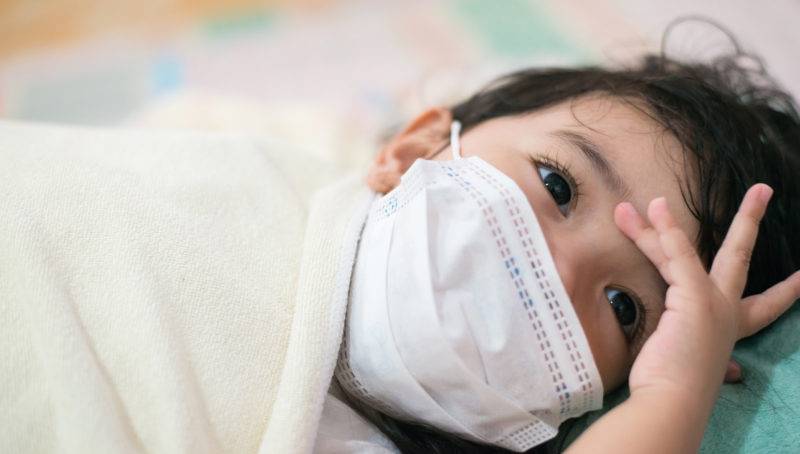Omicron can trigger severe pseudocroup in children, which manifests itself as a barking cough, according to a study

According to a study led by Ryan Brewster and his research team at Boston Children’s Hospital, omicron infection in children can lead to particularly severe seizures of pseudocroup.
Pseudo-croup, also known as laryngotracheitis, is a disease of the upper respiratory tract that mainly affects young children. Typical recognition features are inflammation of the larynx, barking cough, whistling noises when inhaling (stridor) and slight shortness of breath. If the skin between the ribs visibly pulls inward with each breath, the condition is severe and should be taken as a warning sign.
However, there is usually no acute risk of suffocation due to a complete blockage of the airways. An inhaled corticosteroid is used for treatment; in severe cases epinephrine (adrenaline) can also be inhaled. In general, parents are advised to ventilate a lot.
The Boston Children’s Hospital reports a significant increase in diseases with stenosing laryngotracheitis. According to Ryan Brewster, out of 75 pseudo-croup diseases since the pandemic began, 81 percent occurred during the current omicron wave. Based on these data, it can be assumed that Omikron promotes the development of the disease in small children. So far, infections with Sars-Cov-2 in this age group have been almost exclusively mild.
Most affected children were under two years old and 72 percent were boys. Among the patients, only one child was infected with rhinoviruses, while SARS-CoV-2 was detected in all others. 59 of the children presumably infected with omicron were treated with dexamethasone, i.e. a drug containing cortisone; in addition, 22 children received epinephrine, i.e. adrenaline.
The number of hospitalizations was low. Seven children had to be hospitalized for an average of 1.7 days, including four intensive care patients. All children survived the disease and artificial respiration was not necessary in any case.
Ryan Brewster advises pediatricians not to underestimate omicron infections and to prepare for possible intensive care treatments.



